Finding Contentment Podcast
*This is an article from the Fall 2020 issue of Contentment Magazine.
By William C. Heckman, MS, DAIS
Finding Contentment is the official podcast of The American Institute of Stress. This podcast focuses on stress and stress-related issues featuring interviews with healthcare practitioners, stress experts, and professionals with expertise in stress research and management. Finding Contentment is hosted by Will Heckman, AIS Executive Director.

I was asked recently about how and why I started our podcast, Finding Contentment. My answer is quite simple: I wanted to empower people with information on stress and provide tools for a happier life. At the American Institute of Stress, we are dedicated to the advancement of innovative and scientifically based stress management. We have two magazines filled with words, but podcasts offer another informative, entertaining, and enlightening way to inform the public. When people are feeling stressed, it can be beneficial to hear how they can overcome their obstacles or find hope in the reminder that this too shall pass. Sometimes, when things are bad and people are too emotional to think clearly, they may just need to hear about other people facing challenges and making it through in one piece.
Between the pandemic, massive economic upheaval, and social unrest the world has become an incredibly stressful place.
I set out to speak with stress and mental health professionals who can give us specific tips and techniques to help us manage our stress.
The format is very conversational and easy to listen to. And while we do have a topic, the discussion develops organically into many different and interesting areas.
As the host, I feel my responsibilities should focus on offering commentary that engages our audience. Before interviewing guests, I plan the show, research the topic under discussion, and sketch out questions and talking points for our guests. I often find guests through the articles they have written, and I use my curiosity and sense of humor to bring the topic alive. If you want an informative, funny, and encouraging podcast, tune into Finding Contentment.

Here are some brief descriptions of a few of our episodes:
Episode #1: Intro to AIS & What is Stress?
Guest: Daniel Kirsch, Ph.D., DAAPM, FAIS
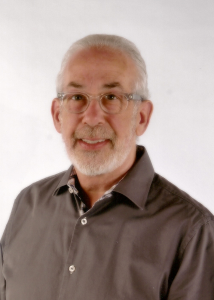
Dr. Kirsch is the President of the American Institute of Stress and the Founder of Electromedical Products International, Inc. He has four decades of experience in the medical field, including extensive clinical practice as a pain and stress specialist, researcher, author, and award-winning pain educator. Throughout his career, Dr. Kirsch has designed medical devices and developed clinical systems for implementing pain and stress control technologies.
To learn more about Dr. Kirsch, go to Daniel L. Kirsch, PhD, DAAPM, FAIS
“Our mission at The American Institute of Stress is to improve the mental and physical health of the community and the world by setting the standard of excellence in stress management in education, research, clinical care, home life and the workplace. “
For our first episode, I though what better place to start than with my boss, my mentor, and one of my best friends, Dr. Daniel L. Kirsch. In this episode Dr. Kirsch and I had a fascinating conversation about the very definition of stress as well as covered an overview of some of the things we do here at AIS. One of the very first things he mentioned was that “stress is not what people think it is,” and he proceeded to explain stress in a way that everyone could understand. Dr. Kirsch also clarifies why stress is not necessarily a bad thing. We covered a wide range of topics and issues related to stress and how to handle it. Dr. Kirsch is unquestionably one of the leaders in this field and provides an informative and fun interview.
Check out this episode to learn some of the best ways to manage your stress and why he says that “stress is the spice of life.”
Episode #2 Coronavirus and Stress
Guest: James Porter, MALS, FAIS, President of StressStop.com
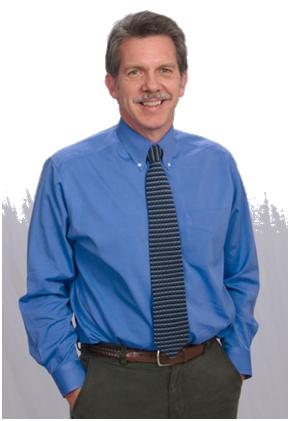
James Porter is president of StressStop.com, a company that has been providing stress management products and resilience training and training materials to corporations, hospitals, government agencies and military bases for over 30 years. His work has been reviewed and reported on in major news outlets including Good Morning America, Ladies Home Journal, The Associated Press, WCBS-TV News and The NY Daily News and he has appeared on THE CBS MORNING NEWS.
He is the author of STOP STRESS THIS MINUTE which has sold over 100,000 copies, including to the Mayo Clinic. His workbook, The Stress Profiler, has sold over 400,000 copies. He is a long time Fellow of The American Institute of Stress.
To learn more about James Porter go to Jim Porter.
For this episode I called on my good friend, James Porter, president of Stresstop.com, and we talked about what is on everyone’s mind…Covid-19! The whole country and the world are in a panic and a frenzy, and stress levels are through the roof! I have had people tell me that they are preparing for a dystopian society where we will all be wearing Mad Max outfits and fighting in Thunderdome for rolls of toilet paper! I have never seen so many so stressed for so long. (And I still cannot figure out this deal with the toilet paper!)
Jim and I had a fun filled and practical conversation about how the pandemic is affecting all of us. We discussed sleep, COVID-19 and its impact on stress. Jim shared how we can be proactive when it comes to stress and talked about meditation and other strategies for learning to make habits of doing what we need most.
Tune into this episode and listen to Jim speak about how to improve your resilience routine and how to use Cognitive Restructuring to lower your stress.
Episode # 3 Managing Stress of Working from Home
Guest: Rozina Lakhani, MD, FAIS

Dr. Rozina Lakhani’s mission is to promote optimum health and happiness. She is a #1 bestselling author, transformational speaker, and psychiatrist. She works as a specialist in the treatment of severe depression and anxiety at Shifa Health, as clinical professor at the University of Washington, and as Medical Director at Residence XII Women Drug Treatment Program. Dr. Rozina received her medical degree from the Aga Khan University in Pakistan and completed her Master of Public Health degree and her residency in Psychiatry at the University of Illinois in Chicago. She is a Fellow of the American Institute of Stress and a diplomate of the American Board of Psychiatry and Neurology.
Today, Dr. Rozina lives with her husband and two children in the Pacific Northwest. She is passionate about helping people reduce stress and dreams of a world where people pursue a happy life with love and purpose.
Learn more about Dr. Rozina and read her blogs at https://DrRozina.com.
In episode # 3, I had the real pleasure of speaking with psychiatrist Dr. Rozina. We spoke about her comprehensive, 21 modules online educational program in the practice of stress management that is available through the American Institute of Stress at: https://www.stress.org/education/online-classes .
During Covid-19 many people have had to work from home, something that they may have never had to do before or even considered. Even in non-pandemic situations, a change like this would cause people to be incredibly stressed, but when added to the rapid and dramatic changes and stressors of our current world, it can be very overwhelming. This topic is so important and current that it comes up frequently in our podcasts. So, I decided to get in touch with Dr. Rozina, as she is always well-informed and a great resource for down to earth tips and techniques.
We had a highly informative discussion about how to manage the stress of working from home. She had great information about how to mentally prepare for work when work and home are at the same location. Rozina also spoke about how even doctors are now virtually “seeing” their patients. One remarkably interesting point she made was that doctor patient confidentiality makes these virtual visits much more complicated, in other words, more stressful!
We hope you tune in to this very enlightening discussion.
Episode # 4 How to Survive the Stress of Social Distancing
Guest: Ron Rubenzer, EDD, MA, MPH, MSE, FAIS
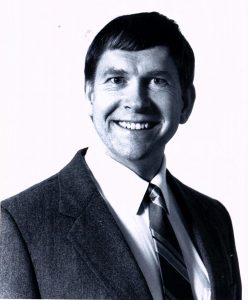
Dr. Rubenzer holds a Doctorate and two master’s degrees from Columbia University in NYC where he won a doctoral fellowship to attend Columbia University’s Leadership Education Program. While serving as a school psychologist at Columbia he won a national student research prize of the year for an article written on the brain. Dr. Rubenzer also worked at the Washington, D.C. Office of Education.
He has devoted his career to specializing in “reducing stressing during testing” for better outcomes. He has worked as a stress manager for a hospital-based Cardiac/Stroke Rehab & Employee Assistance Program and has presented at numerous conferences and appeared regularly on many TV shows. Dr. Rubenzer is the author of the book, How the Best Handle Stress: Your First Aid Kit, which can be found on Amazon. He is a fellow of The American Institute of Stress where he is a contributing editor and writes focus articles on “using stress to do one’s best” at home, work, and school.
To find out more about Dr. Rubenzer or read his articles, please go to drrubenzer.com.
“Social distancing”—even the phrase sounds dire! Human beings are naturally social animals. We go to movies and other events to be entertained together; we go to restaurants to eat together; we even go grocery shopping together. But right now, all of that has come to a sudden halt. It seems the biggest form of entertainment is the facial protection people are wearing. I’ve even seen someone with a bucket on their head with the eyes cut out. Now that was entertaining!
Because of the Covid-19 situation, we are, for all intents and purposes, living in a form of isolation, even working and learning online. I know that we can still communicate via a multitude of technologies, but it just isn’t the same.
After reading his article, titled “Social Separation During the Corona Virus & Noah’s Ark,” I asked Dr. Rubenzer to talk to me about his take on this new social separation. He provided some outstanding tips for coping with social distancing. He made some great points on how, in the end, this may actually make us stronger as individuals, and as a community. We spoke about which groups of people may be more at risk for the negative effects of separation. Dr. Rubenzer also gave some of the best tips and techniques for parents that I have heard to date. He teaches us how to beat “Cabin Fever” with easy-going humor that compels you to pay attention.
If you are a parent, grandparent, or just someone who deals with children daily, this is an episode you won’t want to miss.
Episode # 5 How to Survive the Stress of a Pandemic
Guest Dr. Shevaun Neupert
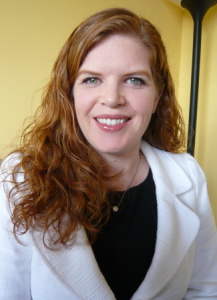
Dr. Neupert is a Professor of Psychology at NC State University where she also directs The Daily Well Being in Adulthood Lab. She earned her Ph.D. in Family Studies and Human Development with a minor in Statistics from the University of Arizona in 2003 and completed her postdoctoral training at Brandeis University. Her research interests include contextual and individual differences surrounding stressors and well-being outcomes. Dr. Neupert has focused her interest on the psychosocial and sociodemographic characteristics of individuals along with changing contextual factors that relate to emotional, physical, and cognitive responses to stressors.
She has written and published many articles on stress and wellbeing. She is a Fellow of the Gerontological Society of America and the American Psychological Association and currently serves as an Associate Editor for the Journal of Gerontology: Psychological Sciences.
To learn more about Dr. Neupert or read her articles, please go to https://psychology.chass.ncsu.edu/faculty_staff/sdneuper
Because the Covid-19 virus continues to cause so many changes and stressors in our lives, we have dedicated more than one show to this subject. Not only are we feeling more stress, but our families, and the people around us, (those that stay 6 ft away), are feeling it too. Stress is as contagious as a virus! So, the more we are around stressed people, the more likely our own stressful feelings increase. In the midst of all the other challenges going on right now, adding the stress of others can take us over the tipping point making us feel overwhelmed.
So how do we get through this? Is there a way to stay positive? I read an article by Matt Shipman, titled “How can we handle stress and stay positive during a pandemic?” in which he talked with Dr. Shevaun Neupert who studies the ways that people cope with stress and what makes some coping strategies more effective than others. Intrigued, I invited her to join me on Finding Contentment. Dr. Neupert had some highly intelligent insights about coping before, during, and after a stressful event. She also spoke about proactive coping skills that can help us better deal with the stress from this pandemic. I asked her why the stress levels and reactions were so different from this virus as compared to past bad Flu seasons. To hear her very astute answer, listen to this enlightening episode.
Episode # 6 Stress and Online Learning
Guest: Chris Simmons, Ph.D., MBA

Dr. Chris Simmons has spent well over a decade in education as both a classroom teacher and administrator in Florida after earning his Ph.D. in Educational Leadership from Florida Atlantic University. His work there focused on “Dropout Prevention: A Study of Prevention Programs used by High School Principals to Increase Graduation Rates.” Chris has also earned his MBA from the University of Florida. He has served as a member of The College Board’s National Faculty.
More recently, Dr. Simmons has been working in the education consulting world, focusing on CTE, Title IX, Mental Health, and School Safety.
To learn more about Dr. Simmons go to https://www.linkedin.com/in/christopher-simmons-b9089162/
The coronavirus pandemic has changed how millions around the globe are educated, transitioning many to working and learning online from home. Even in normal situations, this can be very overwhelming. Because of the coronavirus, over 200 countries have implemented nationwide closures, impacting about 98% of the world’s student population. According to a recent Gallup poll done in Washington D.C.:1
- 70% report having a child in an online distance learning program run by their school
- 42% of parents report concerns about a negative impact on a child’s education
- 27% think the school year should be extended into the summer
My wife is a 5th-grade teacher. Schools are now closed and have been for a while, but education must go on. She has had to make a major change in the way she prepares for her classes and the way she delivers her lessons, as well as how she interacts with her students. Teachers and students have had to learn new skills and a lot of new technology. Being a former teacher myself, I thought that this was an especially important subject. My friend and former colleague, Chris Simmons, was the first person I called to talk about all the challenges that were being faced by students, teachers, and parents. Luckily, he agreed to be the next guest on our podcast.
Chris had a very good handle on all the stressors that students and teachers were facing. In our conversation we covered many important issues including the challenge of keeping up ongoing academics, learning the necessary technical skills, and dealing with the myriad of technical problems that students and teachers face. He also made some excellent points about difficulties faced by families with multiple students in the house learning at different levels. We talked about how there was always a black- or whiteboard for teachers to turn to if the computer crashes in the classroom, but now when the computer crashes, the class is over. These issues are so important that they can affect a young person’s life for many years. This episode we very well received and to date has had the biggest audience. We plan on doing a follow up before the beginning of the next school year.
- Brenan, Megan. “42% of Parents Worry COVID-19 Will Affect Child’s Education.” Gallup, Gallup, 31 Mar. 2020, news.gallup.com/poll/305819/parents-worry-covid-affect-child-education.aspx.
Episode # 7 Reduce the New Stress of Working from Home.
Guest Ashira Prossack, Multi-Generational Workplace Consultant and Trainer

Ashira Prossack is an Internationally recognized Multi-Generational Workplace Consultant and Trainer helping organizations manage, engage, attract, and retain Gen Z and Millennials. Based on over a decade of experience and eight years of research, Ashira helps organizations create solutions to bridge the gap between generations and support the needs of today’s diverse multi-generational workforce. Ashira’s presentations and workshops are designed to encourage participants to think differently about generations in the workplace and look beyond the stereotypes. The focus is on helping people understand not only what the challenges are but why they exist and how to overcome them.
To learn more about Ashira Prossack go to https://www.ashiraprossack.com/
In this episode of “Finding Contentment,” we once again talked about the effect that Covid-19 was having on our lives focusing on the significant changes in how we are working now and how working from home requires major modifications. Dealing with the realities of juggling home responsibilities with work can feel overwhelming!
I reached out to Ashira Prossack after I read her article in Forbes, titled “5 Ways to Reduce Stress Working from Home and Self-Isolating.” In this article, she discussed the new reality of self-isolating and its huge impact on the way we work. I asked her to join me on the show so we could talk about how to reduce that stress. She brought a new and different perspective on how to change your mindset when working from home, making some awesome points about how to get into work mode and not let home mode take over, and vice versa. Her tips about setting boundaries were spot on and definitely worth a listen. We also spoke about how this new normal has affected people of particular generations in different ways. She is a great speaker who brought a wonderful and youthful passion for the topic.
Episode # 8 The Physical Toll Stress Takes and How to Combat it.
Guest: Cynthia Ackrill, MD, FAIS
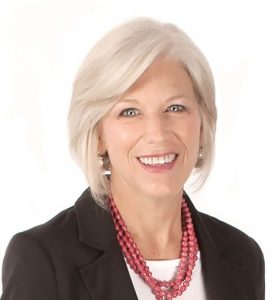
Cynthia Ackrill, MD, FAIS is a Certified Stress Mastery Educator, a leader in the field of stress management, and an expert in the critical relationships between lifestyle choices, performance capacities, and leadership effectiveness. As a physician trained in neuroscience, wellness, and leadership coaching, she brings an incredibly unique and holistic perspective to what it takes to truly thrive. Through workshops, retreats, keynotes, and one-on-one coaching, she helps people create practical wisdom and science-based strategies to handle the challenges of real-life with resilience, energy and grace, wisdom and compassion, happiness, humor, and health. Cindi is dedicated to making the learning process engaging and fun because that is what motivates the human brain. Dr. Ackrill a long time Fellow of The American Institute of Stress as well as the Editor of Contentment magazine, which is free at stress.org
To learn more about Dr. Cynthia Ackrill go to cynthiaackrill.com/ or
https://www.stress.org/about/leadership-structure/boards/cynthia-ackrill-md
Having covered many of the mental and emotional issues of stress, I thought it about time to address the physical toll stress takes on your body and how to combat it. We have closed schools, restaurants and movies, canceled shows and concerts. If we are lucky, we still have a job but have had to learn to work from home. We no longer touch or hug outside our “safe pod” or socialize face to face. A computer screen acts as a barrier between us and our friends and loved ones. Even when we venture out to the store everyone is masked and 6 feet away, making any real human connection a challenge. And we live with the constant worry of “will I or my family get sick?” All of this has caused exceedingly high levels of stress.
Stress can have a wide range of effects on emotions, mood, and behavior. Equally important, but often less appreciated is the negative physical effect of stress. Stress experts around the world are concerned about the short-term and long-term toll these higher levels of stress will have on us all. How do we deal with it? Well, who better to ask than the Editor of Contentment magazine, Dr. Cindi Ackrill.
This episode is another must listen! Dr. Ackrill articulated in the best way possible how disruptive and pervasive this pandemic is and why it is important to find ways to address our stress. As she explained the stress reaction system and much more, I found myself shaking my head yes to the things she was saying. Cindi is so easy to listen to, that we could have talked for hours. If you have ever thought that stress and as she puts it “swimming in a sea of cortisol” does not have a physical toll, I challenge you to listen to this episode. It will change your way of thinking about the relationship between your body and mind.
Episode # 9 Stress Effects in Children—What Teachers and Parents Need to Know.
Guest: Noel Foy
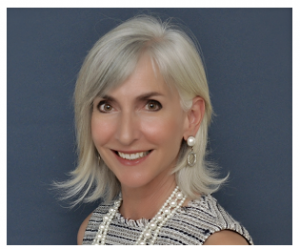
Noel Foy is a Neuroeducational Consultant, Author of ABC Worry-Free, and founder of AMMPETM Neuroeducational Consulting. Noel’s mission is to help teachers, parents, coaches, and students use the neuroscience of learning to their advantage in quick, user-friendly ways. For over 35 years, Noel has served as an educator in various capacities—classroom teacher at Landmark School, Learning Specialist at The Roxbury Latin School, Adjunct Professor at American International College, and Professional Development Trainer for Keys to Literacy. Noel received her BA in Education/Special Education and her MA in American Studies from Boston College.
To learn more about Neuroeducator Noel Foy go to NOEL FOY or Ammpe.com
Here at The American Institute of Stress, I hear from people of every age in every walk of life. At least once or twice a week I am contacted by students asking about stress and its effects. As I have mentioned before, I was a National Board-certified teacher for almost 30 years, and in those many years, I have seen numerous very intelligent students not meet their potential due to poor stress management. In recent times there has been a noticeable increase in stress and the anxiety of younger people.
Now that stress has been amplified by the changes in the way most students are getting their education. I know from experience, that even though ongoing training and recertification are required every 5 years, most teachers never get training or professional development on how to help their students deal with stress issues. As the former chair of the Professional Development Committee, I can tell you that there was little training to be had. Of course, parents, mostly rely on their child’s educational staff for help. So, without training what do we do?
I was fortunate enough to run across a great article by Noel Foy, titled “How Stress Affects Executive Function in Children—What Teachers Need to Know.” After reading it, I asked Noel to join me on the show and we had a great conversation about the strategies to decrease classroom stress and boost executive function in children. We also spoke about how stress is no longer viewed as just an adult problem. She astutely points out some of the stressors that students are having that we may not be aware of. I thoroughly enjoyed our talk and learned a lot—Noel is an excellent teacher!
Episode # 10 Your Stress Affects Other People Around You.
Guest: Rispodii King
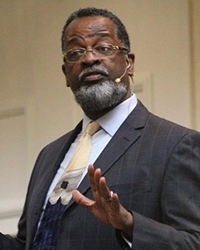
Rispodii King, better known as “Sporty,” is a Toastmasters International Hall of Fame inductee and Certified Stress Mastery Educator, as well as a regular speaker for the Dept. of Defense’s Yellow Ribbon Reintegration Program
Sporty is an expert on personal success, the impact of words on our lives, and turning negatives into positives, he is the author of 8 books of inspirational poetry and positive affirmations which showcase his belief that success is about confidence and listening
To learn more about Sporty, just go to sportyking.com
Stress — that umbrella term for negative emotions like worry, anxiety, and frustration — is contagious. Much like the common cold, you can “catch” it from other people. And just like a virus, it can leave you feeling (emotionally) wiped out. We all have that friend who stays glued to the news all day and then reports to you all that is wrong in the world! I know after that conversation I feel my own stress levels rise! And if you don’t have a friend like that, well it just might be you!
In fact, stress is so contagious that a new Swedish study found you can even spread stress to your dog.2
So, I gave my friend, Sporty King, a call and said let talk about this. We talked about learning to listen to the whole paragraph, not just the sentence. Our conversation touched on many areas, even music therapy. Sporty is a great conversationalist—his positivity and laugh are contagious as well! So, make sure to give this show a listen.
- Dunn, Jancee. “Is Stress Contagious? What You Need To Know.” The Well, The Well by Northwell, 3 Dec. 2019, thewell.northwell.edu/well-informed/stress-contagious-what-you-need-know#:~:text=Research%20shows%20that%20simply%20observing,spread%20stress%20to%20your%20dog.
Episode # 11 How Kindness Helps us with Stress.
Guest: David Fryburg, MD
Dr. David Fryburg is an endocrinologist and research scientist who has held medical school faculty and pharmaceutical industry leadership positions and now works as a consultant. David is the founder and serves as President of the Board of “Envision Kindness,” a novel non-profit that promotes kindness, compassion, joy, and love through images crowdsourced from around the world.
To learn more about Dr. David Fryburg and Envision Kindness go to envisionkindness.org
Current events—the COVID-19 pandemic, political protests, economic upheaval, etc—have left people feeling many intense emotions, such as fear, anxiety, and anger. Even if we are not afflicted with the coronavirus, fortunate enough to still have a job, and have not been affected by all the other disturbing things going on in our world right now, we must acknowledge that as a community we are witnessing death, disease, and violent images on a daily basis. And for many of us who are still living in isolation, there can be severe feelings of loneliness as well. I read an article by Dr. David Fryburg in which he stated that “Layered on top of these other stressors, loneliness itself affects people about the same as smoking 15 cigarettes per day.”
That motivated me to talk with David and learn about his non-profit, Envision Kindness. We spent a good portion of the show speaking about the myriad effects of stress. We also had a great discussion about the negative images that people are subjected to today, and what he has done to offset that.
Listen to this episode to hear all the wonderful ideas he has.
I have to say that I have really enjoyed the opportunity to listen to all our guests. There are many more than mentioned here. You can find a full listing of episodes on a variety of platforms by clicking here. Our podcasts offer an effortless and often entertaining way to gain a lot of knowledge about stress and stress-related issues. I will end this as I end every show:
“This has been Will Heckman. I want to thank you all for joining us today. Remember your support helps us to keep making these podcasts. I want to remind everyone: just as stress is different for each of us, there is no one stress reduction or management strategy that is a right for everyone.
Please join us next time as we explore more stress management strategies and insights.
And remember to visit stress.org to gather information, tools, and techniques to live a healthier, happier, and longer life! I hope the information you heard today will help you find contentment.”
ABOUT THE AUTHOR
William C. Heckman, MS, DAIS is the executive director of The American Institute of Stress and host of its Finding Contentment podcast. He has three decades of experience as a nationally board-certified educator. He is a certified expert in Cognitive Bibliotherapy to help children and young men and women overcome stress-related disorders. He has been a presenter at numerous technology conferences, a book reviewer for national publications, and an award-winning photographer. A former New York City police officer, Will has published articles on the educational use of graphic novels and has been featured on CBS News, in several newspapers, and on national radio talk shows.

Leave A Comment
You must be logged in to post a comment.